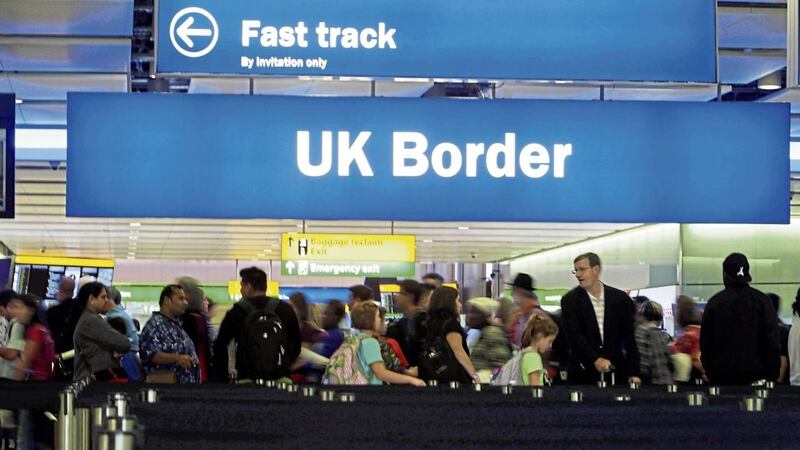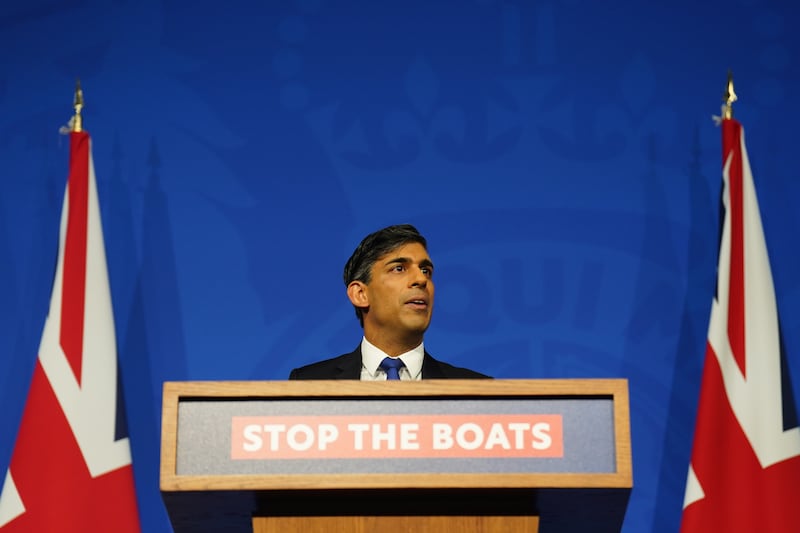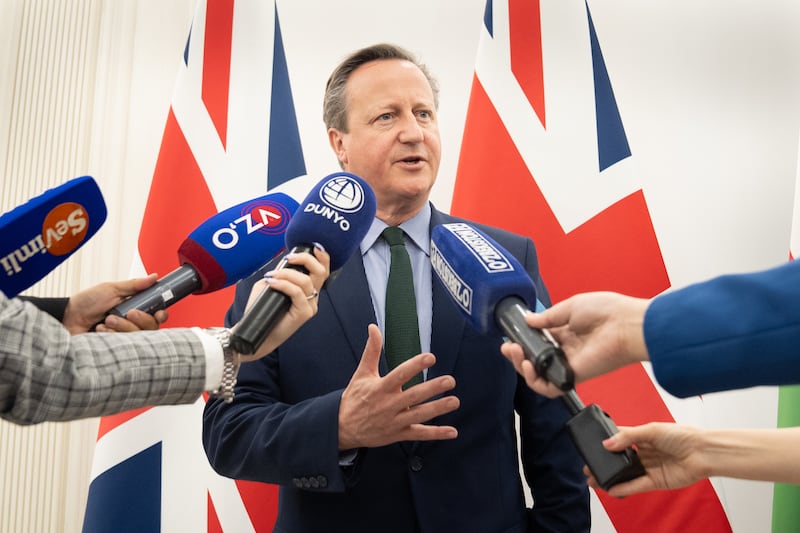NATIONALIST and unionist politicians have warned that British government proposals aimed at curbing immigration will hit the Northern Ireland economy.
Both Sinn Féin and the Ulster Unionists voiced concern about the proposed skills-based system that according to Home Secretary Sajid Javid will focus on “talent and expertise".
DUP Arlene Foster said the plans were a "clear signal that the UK will retake control of its borders" but she welcomed provisions for a pilot scheme for low-skilled agricultural workers.
Under one measure outlined in the British government's white paper, tens of thousands of migrants could come to the UK to work for up to a year, in a move that could be in place until at least 2025, acting as a "safety valve" for the economy and protecting sectors reliant on lower skilled overseas labour.
It would be open to nationals from specified countries, regardless of their skill level or whether they have a definite job offer.
The home secretary said: "Today's proposals are the biggest change to our immigration system in a generation.
"These measures will boost our economy and benefit the British people."
In other features of the system:
:: Anyone who wants to come to the UK would need some form of permission
:: EU visitors will not require a visa in advance of travel but an Electronic Travel Authorisation scheme would be introduced
:: There would continue to be no limit on the number of international students who could come to study in the UK
:: Existing rules on bringing family members to the country, including minimum income requirements, would be extended to settled EU citizens.
Sinn Féin's Máirtín Ó Muilleoir said the post-Brexit immigration policy would damage the health service and narrow opportunities for young people.
He claimed Brexit had been driven by "right-wing posturing on immigration and xenophobia".
"Less immigration means lower employment, a narrower skill base and ultimately a drop in living standards – it means our health service will struggle to recruit doctors and nurses; it means a loss of diversity and cultural enrichment," the South Belfast MLA said.
Ulster Unionist finance spokesman Steve Aiken said the proposed £30,000 salary cap could have "disastrous consequences" for Northern Ireland industry.
He said its impact would be most felt in the health, manufacturing, agriculture, fishing and hospitality industries, as well as higher and further education.
"Bearing in mind the average wages within our manufacturing, hospitality and health sectors are well below this threshold – with starting salaries in the NHS for nurses at just £23,000 and junior doctors starting at £27,000 – Northern Ireland is likely to be the most severely hit region of the UK," he said.
“It is understandable that many of our highly valued skilled workers from across the world, and in particular those from the EU, feel that their skills and contribution to our society is being discounted and disregarded and that the UK and Northern Ireland in particular is becoming an unwelcoming place."
DUP leader Arlene Foster welcomed the "aim of creating a new, single and skills-focused" immigration policy but noted that the £30,000 threshold was "not reflective of the Northern Ireland labour market, particularly in agri-food processing, logistics and hospitality"
"Appropriate future access to low-skilled labour in Northern Ireland is important, particularly given the potential for local firms to be placed at a competitive disadvantage if those in the Irish Republic did not face similar constraints," she said.








